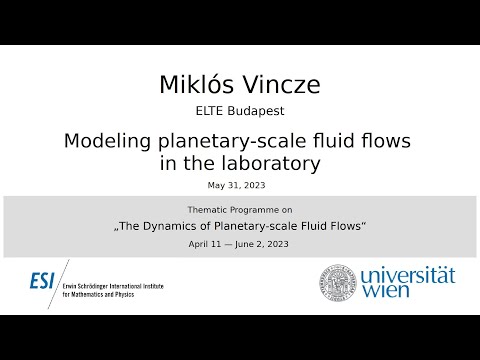Description:
Explore planetary-scale fluid dynamics through laboratory experiments in this 53-minute conference talk by Miklós Vincze at the Erwin Schrödinger International Institute for Mathematics and Physics. Discover how rotating experimental setups can accurately model fundamental processes in Earth's atmosphere and oceans using hydrodynamic similarity principles. Learn about recent research conducted at various institutions, including studies on Rossby waves, baroclinic instability, and barotropic instabilities in planetary atmospheres and ocean circulation. Examine topics such as the effects of decreasing meridional temperature contrast on mid-latitude temperature fluctuations, the Eocene-Oligocene transition's impact on Antarctic glaciation, polygonal vortex formation in gas giant planets, and atmospheric circulation modeling of tidally locked exoplanets. Gain insights into rotational systems, experimental observations, equations, polar amplification, ocean circulation, the Drake Passage opening, fluid dynamics, ice albedo feedback, and future experimental directions in this comprehensive exploration of planetary-scale fluid flows.
Read more

Modeling Planetary-Scale Fluid Flows in the Laboratory
Add to list
#Science
#Physics
#Fluid Mechanics
#Fluid Dynamics
#Astronomy
#Exoplanets
#Planetary Science
#Planetary Atmospheres
#Earth Science
#Climate Science
#Climate Modeling